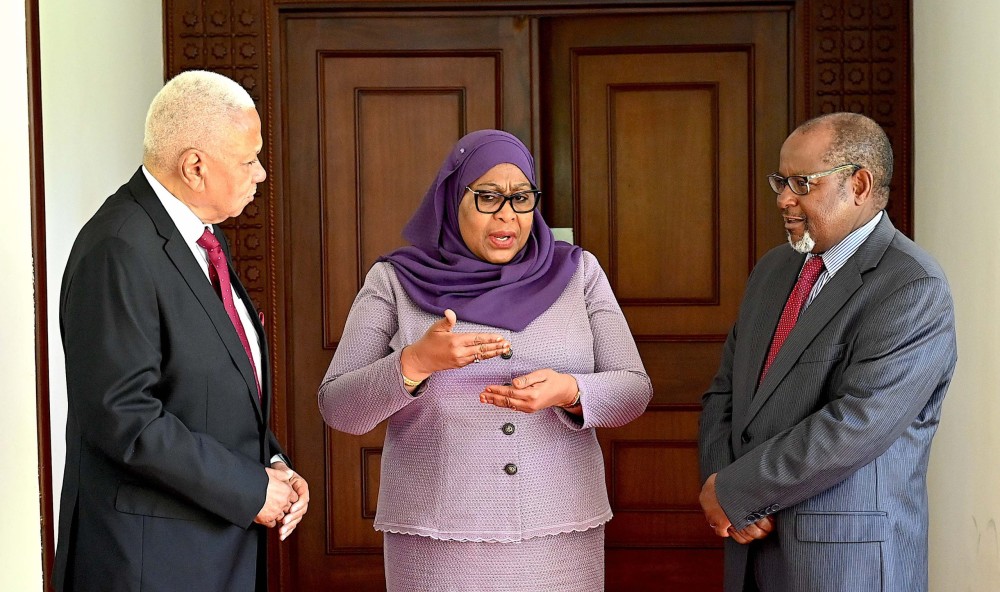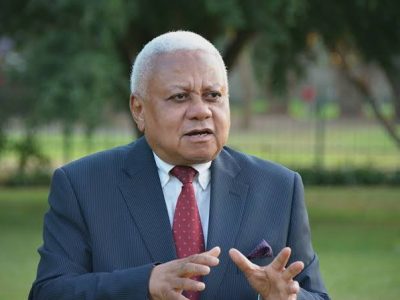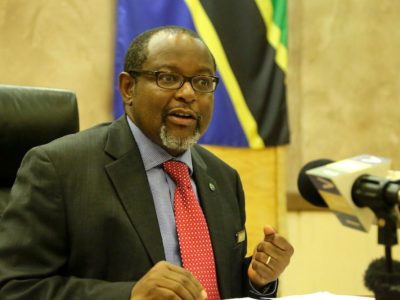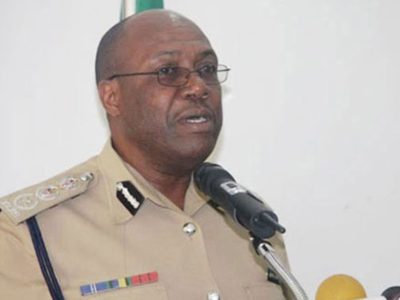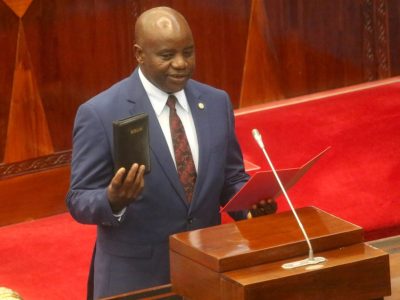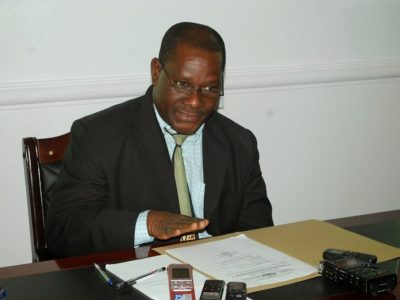January 31, 2023, marked a significant milestone in Tanzania as President Samia Suluhu Hassan took a bold step to address the challenges plaguing Tanzania’s Justice System. President Hassan inaugurated a Commission dedicated to examining and improving the performance of the nation’s criminal justice institutions with a vision of promoting fairness, efficiency, and human rights.
Under the capable leadership of Retired Chief Justice Mohamed Chande Othman as the Chairman and Retired Chief Secretary Ambassador Ombeni Yohana Sefue as the Vice Chairman, along with a distinguished team of nine members, the Commission embarked on a critical mission. The members were carefully selected, bringing together diverse expertise and perspectives to comprehensively analyse the issues.
Tanzania Digest has meticulously collected key details regarding the current state of Tanzania’s justice system and the significant recommendations by the Commission appointed by President Samia Suluhu Hassan.
The members of the Presidential Commission tasked with reviewing Tanzania's Justice System
Former Chief Justice Mohammed Chande Othman chaired the commission; the commission’s members included former Chief Secretary Ambassador Ombeni Sefue as the deputy chairperson, Edward Hosea, the former president of the Tanganyika Law Society (TLS), Yahya Khamisi Hamad, the former president of the Zanzibar Law Society (ZLS).
Others were Saada Ibrahim Makungu, a former member of the Police Force; Omary Issa, the chairperson of the Tanzania Electric Supply Company Limited (Tanesco) board; Baraka Leonard, a senior official from the President’s Office; Attorney General Dr Eliezer Feleshi, Dr Laurean Ndumbaro, the former Permanent Secretary of Public Service Management and Good Governance, as well as former Inspector-General of Police (IGP), Said Mwema and former IGP Ernest Mangu.
The timeline of activities

A presidential commission on the review of Tanzania's criminal justice system Inaugurated
The President of the United Republic of Tanzania, Her Excellency Dr Samia Suluhu Hassan, inaugurated a Commission to Examine How to Improve Tanzania's Justice System.
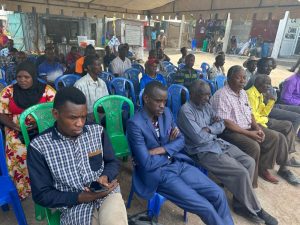
Presidential Commission visit Mwanza
The members of the Presidential Commission, assigned with the crucial task of scrutinizing Tanzania's Justice System for potential improvements, diligently pursue their mission by visiting diverse institutions and engaging in constructive discussions with institutional leaders and community groups in Mwanza.

Analysis to provide a preliminary draft of recommendations.
After three months of gathering stakeholders' feedback, the Commission for Improving the Criminal Justice System and Institutions in the Country commenced analysis to provide a preliminary draft of recommendations.
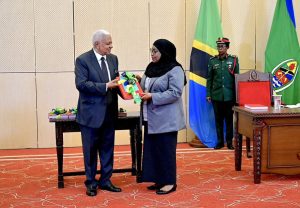
President Samia Suluhu Hassan receives the report.
Presented by the Chairman of the Commission, Retired Chief Justice Mohamed Chande Othman, at a ceremony held at the State House in Dar es Salaam.
Tanzania's criminal justice system: Summary of procedures for subordinate courts
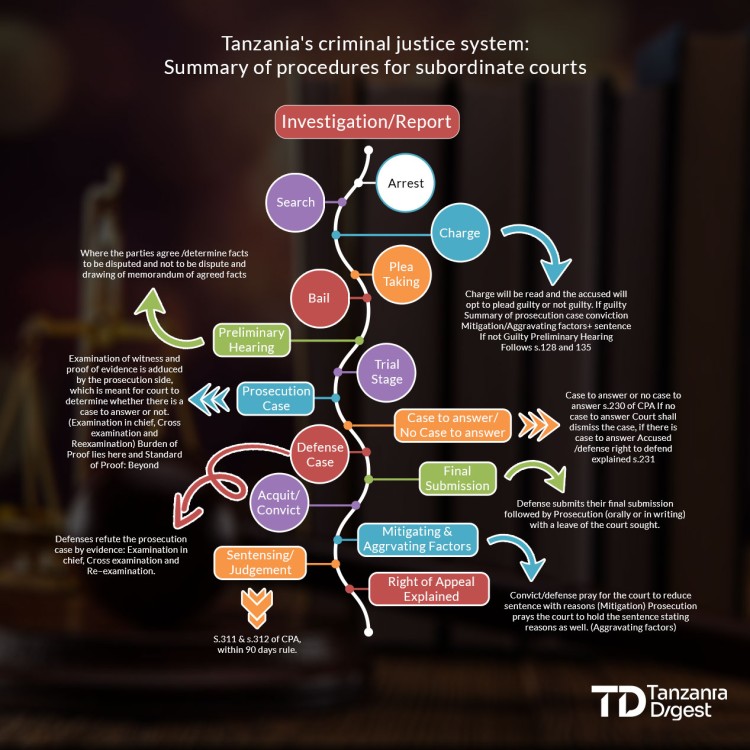
Key findings and Recommendations
The Commission identified a need for a national strategy for detecting and preventing crime. Law enforcement agencies primarily focus on apprehending criminals after crimes rather than proactively preventing them. Additionally, there need to be more resources, exacerbating the problem.
The Commission recommends developing and implementing a specific “Crime Detection and Prevention Strategy” strategy in collaboration with various stakeholders in the Criminal Justice system. The strategy should address maritime and cybercrime as well. The revival and official recognition of the ten-household system within the Local Government system is suggested to facilitate community identification for sustaining the crime prevention strategy.
Integrating social and commercial service systems with identification and registration systems is proposed to give every citizen a unique identification number. Steps to reduce a cash-based economy, including removing barriers in payment systems and online money transfers, are recommended.
Community engagement systems in crime prevention, such as Community Police and TAKUKURU-Friendly, should be strengthened, and individuals involved should receive basic training on their responsibilities, emphasising respect for the law and human rights.
Collaboration with the private sector is encouraged to promote and invest in using CCTV cameras and ICT for crime prevention and detection. Lastly, education should be provided to the community to raise awareness about the importance of crime prevention.
The investigation is the most important step after a report of any criminal offence because it’s the only thing that will help the prosecution to have the basis for their case in court through the accumulation of evidence. Apprehension can be done at the crime scene; if not, detection work of various kinds may occur until the police have a suspect.
The quality of investigations and inquiries is crucial for timely justice, and improving the performance of Criminal Justice Institutions requires addressing issues of investigators’ capacity, expertise, resources, integrity, accountability, and efficiency. Currently, the lack of separation between the Investigation Department and other police activities leads to delays, lack of specialisation, and limited investigation efficiency. The department lacks experts, modern tools, and training, as well as outdated curricula.
The Prevention and Combating of Corruption Bureau (PCCB) faces challenges such as corruption within its ranks, a lack of competent investigators in corruption issues, a limited budget, and the absence of a recognised cybercrime investigation laboratory. Due to its non-union status, the Drug Control and Enforcement Authority (DCEA) also faces challenges, resulting in difficulty in controlling drug trafficking. The Authority operates regionally, leading to overlapping responsibilities and insufficient resources.
Consequences of multiple institutions involved in investigations include conflicts, increased government costs, lack of management and control systems, coordination challenges, and the need for nationwide coverage. Rapid response units formed by investigative institutions are criticised for their ineffectiveness, lack of accountability, and continuity.
The Commission recommends the establishment of a new and independent Investigative Authority, the National Bureau of Investigation (NBI), responsible for investigating major criminal offences. The NBI should have its budget, capacity to recruit staff, training institution, scientific laboratory, ICT systems, and specialised investigators. The law should also establish time limits for investigations in cases heard by the High Court.
Institutions with arrest authority sometimes misuse their power, leading to harassment and inconvenience for citizens. Cases of arbitrary arrests and arrests based on false accusations have been reported, resulting in legal action and compensation for the victims. The Commission has identified Regional Commissioners and District Commissioners as key figures involved in infringing upon citizens’ rights, misusing laws and practising unnecessary visits accompanied by Security Committee members.
To address these issues, the Commission recommends amending the Regional Administration Act to remove the arrest authority held by Regional Commissioners, District Commissioners, and other leaders. Instead, these leaders should follow the existing procedure outlined in the Criminal Procedure Act. Suppose it is deemed necessary for them to retain arrest authority. In that case, they should exercise it in accordance with specific conditions outlined in the Regional Administration Act, and any violation should result in severe consequences for the responsible leader.
Regional Commissioners and District Commissioners accompanying Security Committee members without necessity should be ceased, and they should refrain from identifying themselves as Chairpersons of Security and Defense Committees. Police officers or officials who abuse their arrest authority should face disciplinary action. Educating citizens about their rights within the Criminal Justice System is also recommended.
Plea bargaining agreements are used as a procedure to resolve criminal cases through agreements where the defendant admits to the charged offense or a lesser offense in exchange for certain concessions from the prosecutor. In Tanzania, the plea bargaining procedure is governed by specific laws and guidelines. However, stakeholders have raised concerns about delays, involuntary agreements, lack of transparency, and limited involvement of officials in the process.
After reviewing case files and analyzing the plea bargaining procedure, the Commission identified shortcomings, particularly in the early phases of implementation when specific regulations were lacking and the Director of Public Prosecutions’ authority was not devolved. However, improvements were made with the enactment of the Chief Justice’s Rules in 2021 and the devolution of authority to regional and district levels in 2022.
The Commission proposes several measures to strengthen the implementation of plea bargaining, including ensuring timely availability of consent from the Director of Public Prosecutions, promoting voluntary participation of defendants without coercion, enhancing transparency, monitoring the fulfilment of monetary obligations, involving a larger team of officials, and continuously monitoring and improving the procedure for transparency, fairness, and efficiency.
It has been observed that authorities with the power to arrest often use excessive force, resulting in the mistreatment of suspects. The presence of multiple institutions with arrest powers has caused confusion among citizens, making it difficult to determine which institution arrested their relatives and where they are being held. Numerous arrest and detention facilities have raised concerns in society, as it is believed to contribute to the disappearance of individuals while in the custody of law enforcement agencies.
The Commission makes the following recommendations:
- Regulatory bodies with arrest authority should collaborate with the Police Force when performing their functions.
- Other institutions with arrest authority should collaborate with the Police Force during arrest operations.
- Only police detention facilities should be utilized to hold suspects of criminal offences.
- Relevant authorities should take disciplinary action against personnel who violate procedures related to the process of arrest and detention of suspects.
The Commission has received complaints regarding the restrictions on granting bail for certain offences. Stakeholders have proposed different perspectives, including making all offences bailable, or categorizing serious crimes as non-bailable while allowing bail for other offences. Issues with the interpretation of predicate offences in money laundering and existing bail procedures in the Economic and Organized Crime Control Act have resulted in a high number of defendants being denied bail.
After evaluating stakeholder recommendations, the Commission proposes several measures:
- Amending the interpretation of predicate offences in money laundering to reduce the number of defendants being denied bail.
- Reviewing the table defining economic sabotage offences in the Economic and Organized Crime Control Act to establish a threshold for the value of assets or money involved in a case, thereby regulating authority and determining which offences should be categorized as economic sabotage.
- Amending the Economic and Organized Crime Control Act to ensure that decisions to deny bail to suspects are made by the court.
- Amending the Criminal Procedure Act to require non-bailable cases to be heard within a specified timeframe, granting bail if the case has not commenced within that timeframe unless substantial grounds exist to deny bail.
- Enacting a specific Bail Act to consolidate the issue of bail in one law, defining the system, authority, and procedures related to bail, and reducing multiple authorities involved in bail matters.
The Commission has identified inadequate compliance with guidelines and laws regarding preserving evidence in some police stations. Limited storage space and insufficient diligence among officials contribute to the deterioration and loss of evidence, leading to failures in prosecutions and financial losses for the government.
To address these issues, the Commission proposes several measures:
(i) The government should provide modern infrastructure and increase the use of ICT in evidence preservation, including establishing a digital system for the collection, storage, presentation in court, and disposal of evidence between the Police Force, Office of the Director of Public Prosecutions, and the Tanzanian Judiciary.
(ii) Strengthening the management and accountability of evidence preservation to ensure proper handling and storage.
(iii) Regular training should be provided to personnel responsible for evidence preservation by investigation and forensic institutions.
(iv) Establishing robust procedures and strategies for the disposal of hazardous evidence.
(v) Officials should avoid seizing and taking possession of evidence without corroborating evidence linking it to the case or reporting the allegation to prevent unnecessary retention of unrelated items.
The statements made by political leaders and government officials have, on occasion, infringed upon people’s rights, causing concerns about the boundaries and authority of these leaders. Complaints from citizens highlight the need to address these issues and reinforce the principles of good governance and the rule of law.
The Commission recommends the following measures:
The authority responsible for appointing leaders should instruct those leaders who do not have specific legal arrest powers to adhere to established procedures when issuing arrest orders. This directive aims to ensure that leaders act within the bounds of the law and respect citizens’ rights.
If any leader violates these instructions, they should be held personally accountable for their actions, and the government should not be involved in any legal case resulting from the violation. This approach emphasizes individual responsibility and accountability for actions that exceed legal authority.
Local governments play a crucial role in involving citizens in planning and implementing development projects at the grassroots level. However, stakeholders have expressed concerns about Local Government Authorities (Councils) establishing criminal offenses through by-laws, and the Commission recommends reducing their criminal powers.
The Commission analyzed local government laws and identified provisions that grant arrest authority to officials of local government authorities. These provisions include the authority of Directors of Urban Authorities to deal with crime and order arrests, as well as the authority of Urban Authority Directors and Ward Executive Officers to arrest individuals who commit offenses under local by-laws.
Based on their findings, the Commission proposes the following:
(i) The police authority held by Directors of Local Government Authorities should be removed from the law, and the Police Force should exercise that authority instead.
(ii) The arrest and detention authority held by Directors and Ward Executive Officers should be removed.
(iii) The Police Force should extend its services to all wards to ensure consistent and uniform law enforcement across the jurisdiction.
The Whistleblower and Witness Protection Act, Chapter 446, aims to protect informants and witnesses. However, the Act does not specify a specific institution responsible for overseeing and coordinating the protection and security of informants and witnesses. For example, Section 11 of this Act states that the Authority responsible for protecting the informant or witness, if it deems that the person’s life or property is at risk, shall refer the matter to the institution with the Authority to protect the informant or witness. However, the Act does not specify the specific institution with the Authority to protect the informant or witness.
The Commission proposes:
(i) Amendments to the Whistleblower and Witness Protection Act specify a specific institution to coordinate the protection of witnesses and informants in the country to enhance their protection.
(ii) The relevant institution should have adequate funding to carry out its responsibilities.
The Commission has received complaints regarding the use of nolle prosequi, where suspects whose charges were dropped are rearrested and charged with the same offences. The Commission has found that the power of nolle prosequi does not terminate a case according to the Msekwa Commission’s review of the Judicial System in 1977. Efforts have been made to prevent the abuse of this power in Tanzania, including recent amendments to the Criminal Procedure Act.
The Commission proposes the following measures:
(i) The nolle prosequi procedure should continue to exist as it plays an important role in safeguarding public interests by allowing the Director of Public Prosecutions to drop cases lacking legal validity.
(ii) Education should be provided to stakeholders in the Criminal Justice System regarding the improvements made to the nolle prosequi system following the recent amendments. This education should emphasize sufficient evidence before filing cases and proceeding with trials.
(iii) If the current amendments fail to address the challenges related to nolle prosequi, further amendments should be considered to require the consent of the court for granting nolle prosequi.
(iv) Judicial officers and prosecutors who fail to comply with Section 91(3) requirements of the Criminal Procedure Act should face disciplinary action from their respective employment authorities. This will ensure adherence to the law and accountability for non-compliance.
The presence of criminal justice entities operating in a militarised manner has led to excessive use of force against suspects during arrest, search and interrogation, the carrying and use of military-grade weapons, the wearing of uniforms similar to those of the Tanzania People’s Defense Force (TPDF), and institutions striving to equate their status with the TPDF. These entities include the Fire and Rescue Force, Immigration Department, and Wildlife and Forest Conservation Force.
The proliferation of militarised entities has resulted in numerous institutions with a militarised image, a lack of cooperation from the public towards the criminal justice institutions due to complaints of harassment and torture by militarized institutions, and the potential spread of weapons, which can threaten national security. Additionally, fire and rescue services were initially under the District Councils, and decentralization to the Local Government Authorities will bring fire services closer to the people. Furthermore, this decentralization will help integrate fire and rescue services with urban planning activities carried out by the Local Government Authorities.
The Commission proposes:
(i) The process of establishing militarised entities should be halted.
(ii) Institutions involved in criminal justice or providing services to the public in a militarized manner, such as the Fire and Rescue Force, Immigration Department, and Wildlife and Forest Conservation Force, should return to their original mandate of providing services to the public.
(iii) Fire and rescue services should be reinstated and implemented at the district level, considering the significant overlap between fire services and other district activities in urban planning.
(iv) Training for Forest and Wildlife Conservation Officers should be provided by the Police Force, taking into account the principles of human rights and the rule of law.
(v) The Ministry of Natural Resources and Tourism should reinstate all civilian staff to their original employment positions and remove military attire and ranks, except for personnel in the department responsible for combating poaching.

